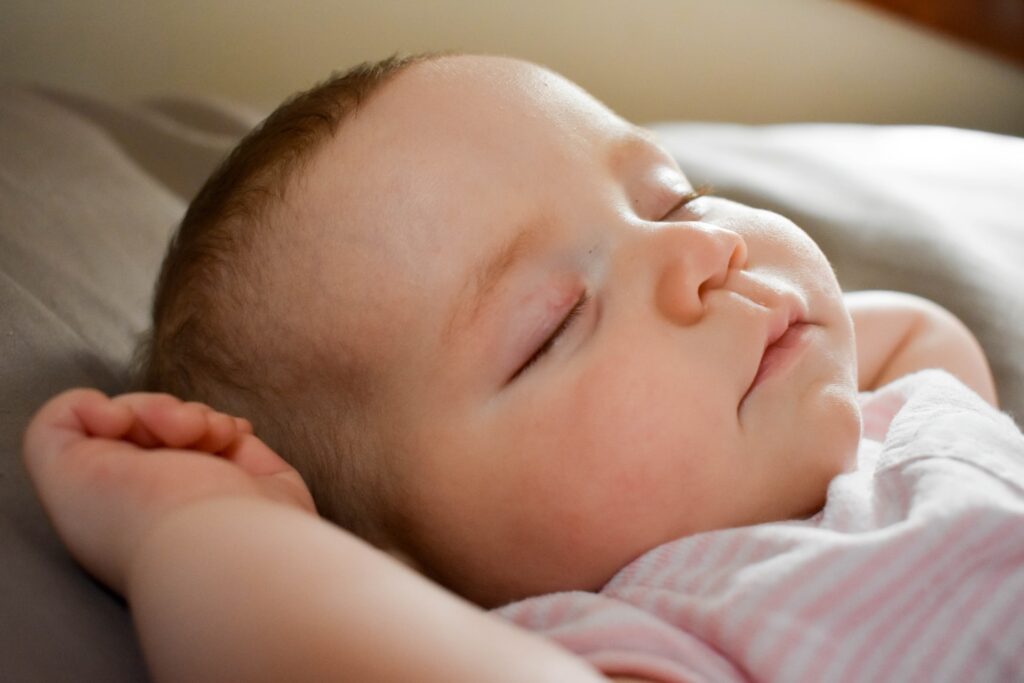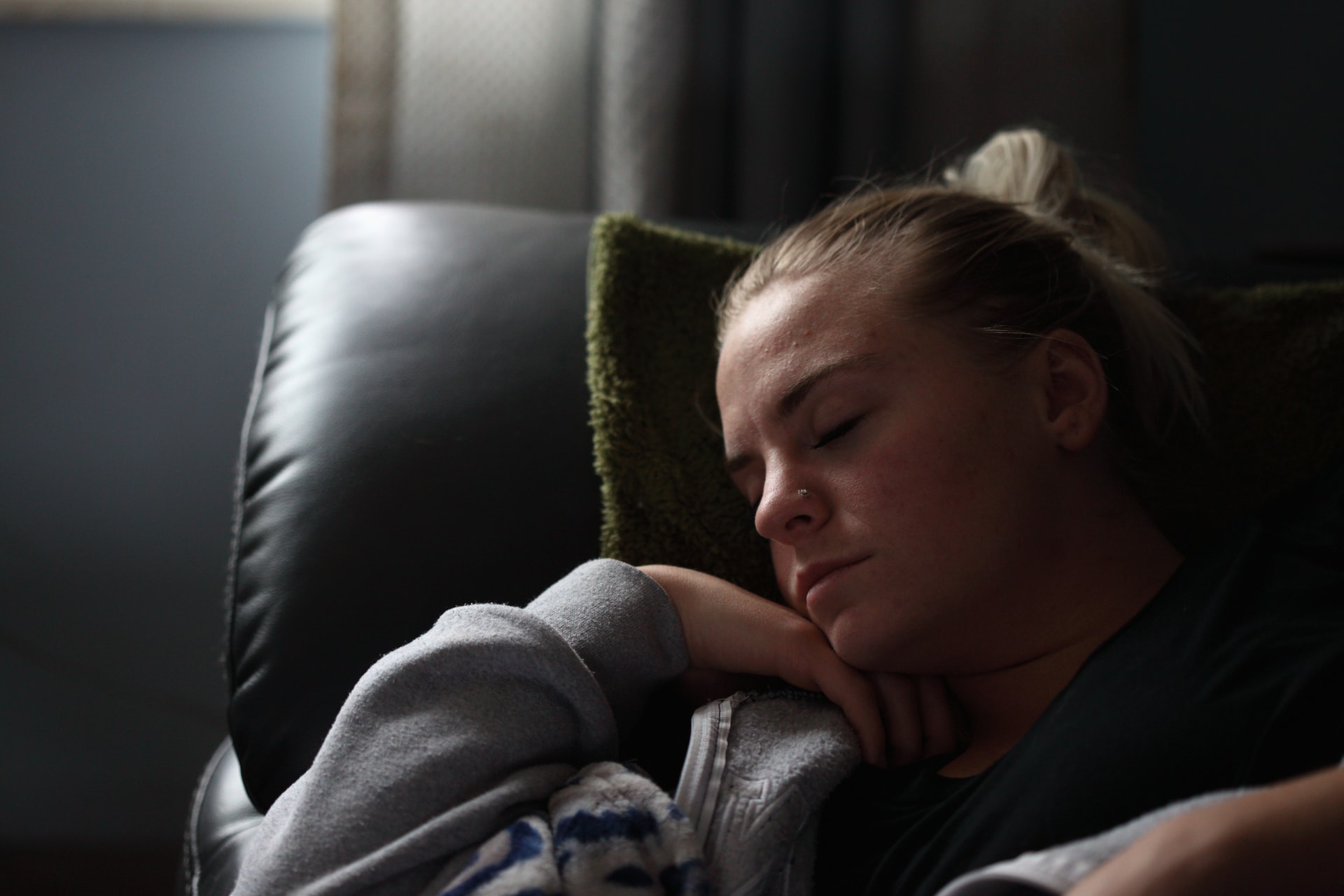Why Your Baby Is Crying In Their Sleep And What Should You Do?

Have you ever gone to check on your infant to see what’s wrong when you discovered that they were somehow still asleep? If so, you are not alone in wondering why babies occasionally scream while they are sleeping. Parents are frequently unclear of how to react when their infant is sleeping with their eyes closed while screaming out, which is just another mystery about the tiniest humans.
Many parents find it unsettling when their newborns start to scream while they are sleeping, and this raises concerns about whether or not their children are hungry or experiencing nightmares, as well as how to get their crying child to go back to a restful, deep slumber. Knowing the most prevalent causes of newborns’ sleep-related crying will help you know what to do the next time your child starts to cry or scream.
Table of Contents
How does your baby sleep?
As you may have observed, babies don’t sleep the same as kids or adults do. In addition to sleeping more frequently and for longer periods of time (especially babies), their sleep patterns are also different. They vary primarily from adults in that they experience greater rapid eye movement (REM) sleep.
Your baby dreams during REM sleep, sometimes referred to as light sleep. Their eyes might be moving beneath their eyelids, which you could see. Additionally, they might jolt or twitch, and their respiration might start to become erratic. These kinds of movements, however they could seem unsettling, are only a natural component of your baby’s sleep cycle.
Why do babies cry in their sleep?
Even though babies don’t typically scream as they sleep, it does happen occasionally. When they hear their infant wailing, some parents turn on the monitor, only to be shocked to realize that the baby’s eyes are closed. Other parents may go to check on their child only to discover them sound sleeping when the wailing abruptly stops. You can be perplexed by this conduct or question whether there’s a problem. You can better assist your baby if you are aware of the causes of sleep-related crying in babies.
The three most frequent motives why children cry in their sleep
Crying whilst transitioning from one sleep cycle to the next
Like adults, infants sleep in cycles. But in contrast to adults, children transition between sleep cycles very rapidly, spending extra time in REM sleep (also referred to as energetic sleep) than deep sleep.
During this stage, you might also be aware your baby’s eyes transferring a lot underneath their eyelids (this is the place the time period “rapid eye movement,” or REM, comes from). Babies can even be viewed transferring their hands and legs, closing and opening their hands, twitching or jerking, or yes, even crying at some point of REM sleep.
With sleep cycles lasting simply forty minutes on average, many toddlers will trip a short awakening at the quit of every one. During this quick awakening, toddlers may also cry for a few minutes and put themselves lower back to sleep or can also now not even wholly awaken.
Crying due to overtiredness
When kiddies don’t get adequate sleep or are wide awake longer than they can readily manage, they can rapidly turn out to be overtired. Overtiredness triggers fatigue-fighting hormones, which can make it even greater difficult for children to fall and remain asleep.
It appears counter-intuitive, and it can be a struggle. Overtiredness and massive tears simply earlier than falling to sleep are the most frequent motives your child might also be crying in their sleep.
Crying due to teething pain
When enamel buds commence emerging, infants can also be very uncomfortable — and they’ll let you recognize it. Teething toddlers are distinctly fussier and will regularly whine due to the soreness each day and night.
If you suspect your infant may also be working on a new tooth, you may be aware greater regularly occurring moderate crying or whimpering whilst sleeping. Ask your child’s pediatrician what they suggest for pain related with teething.
Unless you’re involved for their safety, it’s a appropriate concept to wait and watch earlier than intervening when your child is crying in their sleep. When you reply too quickly, you might also inadvertently wake your toddler all the way up or forestall them from falling returned to sleep on their own.
Brief episodes of crying throughout sleep are developmentally fantastic and don’t always require help. So, the subsequent time you find out your infant is crying with eyes closed, take a little step again and wait to see what takes place next. Your child may additionally shock you, and cease crying all on their own!
What should you do to assist a crying infant to sleep?
Here are a few guidelines to assist your infant cease crying and settle down ample to fall asleep.
Condense your typical bedtime routine.
If you feel your child is overtired, it’s high-quality to condense your regular bedtime events and assist your child start to settle to sleep quickly. A child that’s melting down at some stage in the bedtime pursuits frequently simply desires to sleep. Sometimes they’re crying genuinely due to the fact they’re exhausted! If your child appears very tired, it is OK to pass by some steps of your common bedtime pursuits or pace up the routine.
Bedtime routines for newborns ought to be short (approximately 10 minutes) and encompass simply a few things to do such as altering the baby’s diaper, making use of lotion or a soothing massage, swaddling or altering into pajamas, and rocking for a few minutes till drowsy.
Bedtime routines for older infants are commonly barely longer (approximately 15 – 30 minutes) and might also encompass extra things to do such as analyzing 1 – two books or singing lullaby songs.
Lay on the soothing
When a infant is very upset, it is beneficial to spend some more time soothing them. You can attempt turning on white noise and start shushing or singing to your baby. Many infants additionally settle down quicker and will end crying when rocked or bounced gently. If your child takes a pacifier, you can additionally use it to assist your toddler give up crying.
If you are breastfeeding, you might also locate bringing your toddler to the breast to alleviation nurse for a bit places an stop to crying, even if they are no longer hungry. Nursing is very soothing for babies, and the closeness to mother will convey down their coronary heart fee and put together them for sleep.
Be patient
Calming a crying infant might also take some time, and they can also take longer than common to fall asleep: Be patient. If there is extra than one caregiver, reflect onconsideration on taking turns with the baby. Once the crying has stopped, now’s the time to strive inserting your toddler to sleep.
Tips for a good night’s sleep
Here are some recommendations for getting your baby to sleep soundly in addition to the nightly ritual:

- Keep track of the room’s temperature! The ideal temperature range is 18 to 22 °C. You can utilize one of the numerous features provided by the sleep trainer REMI, which includes a sleep tracker that records the room’s temperature each night, for this.
- Open the windows every day to allow in fresh air to air out the space.
- Use a firm mattress that is appropriate for your baby’s back.
- Make sure your infant doesn’t perspire excessively. It is necessary to adapt the mattress’ material, and it is crucial to keep blankets and duvets away from young children. Instead, prioritize pajamas and sleep sacks.
- Avoid giving the infant too many or too large soft toys that could wake them up at night.
- Don’t wake the infant at the first sign of crying. They might be crying while they’re still fast s
- If the infant is awake, you should promptly comfort them but try to avoid dragging them out of bed. It is not appropriate to think about waking up at night as something good or enjoyable!
See more about How To Put A Baby To Sleep In 40 Seconds?




















![Serta Arctic Mattress Reviews In 2022 [Updated] Should You Buy It Or Not](https://www.myspacebeds.com/wp-content/uploads/2022/09/Serta-Arctic-Mattress-Reviews-In-2022-Updated-Should-You-Buy-It-Or-Not-2.jpg)
![Nectar Premier Copper Mattress Review In 2022 [Updated]](https://www.myspacebeds.com/wp-content/uploads/2022/09/Nectar-Premier-Copper-Mattress-Review-In-2022-Updated.jpg)